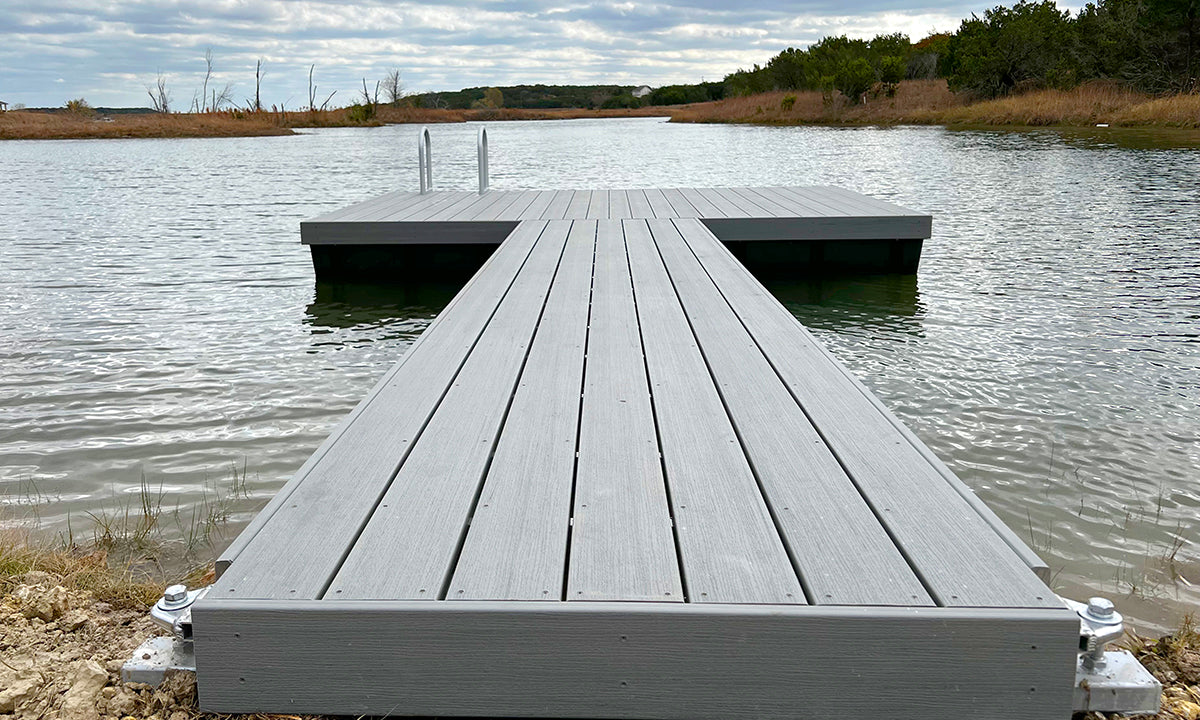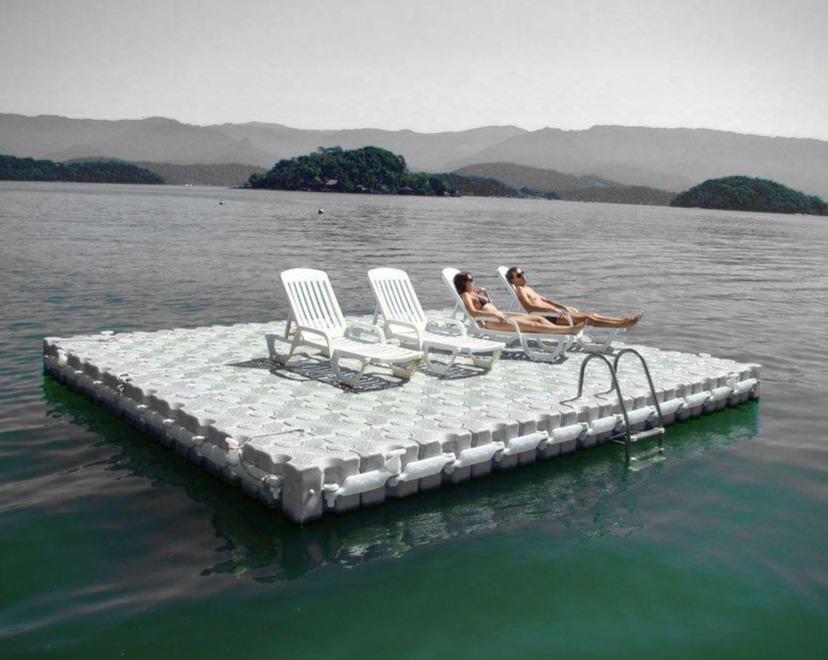The Ultimate Guide to Picking the Ideal Floating Docks
Selecting the excellent floating dock needs an extensive understanding of different elements that influence both efficiency and durability. Factors such as dock types, products, and important features significantly impact your decision-making procedure. Furthermore, factors to consider around installment and budget plan can additionally complicate the choice. By examining these facets systematically, one can make certain an investment that not only fulfills instant demands yet also enhances overall home value. As we discover these vital elements, it becomes clear that the ideal options can result in a long-term and functional option tailored to your certain requirements.
Understanding Floating Dock Kind
When picking a floating dock, it is important to recognize the various kinds offered, as each serves distinctive functions and applications. Floating docks mainly come under 3 groups: modular, stationary, and pontoon docks.
Modular docks are composed of specific areas that can be easily set up or reconfigured, making them excellent for changing water degrees and diverse uses, such as entertainment tasks or business operations. Their versatility allows for customization based upon specific needs.

Pontoon docks are defined by their buoyant framework, typically composed of multiple pontoons that give security and support. They are specifically appropriate for larger vessels and are generally utilized in marinas or for waterside buildings. Comprehending these types aids in selecting one of the most appropriate floating dock to fulfill certain demands, ensuring optimum performance and safety and security.
Trick Products for Sturdiness
Selecting the appropriate products for floating docks dramatically influences their resilience and longevity. One of the most typical products include wood, plastic, metal, and composite materials, each offering unique advantages and restrictions.
Wood, frequently preferred for its visual charm, needs regular maintenance to endure wetness and decay. Pressure-treated lumber can improve resistance to rot, but it might still be susceptible to insects and weathering.

Plastic docks, made of high-density polyethylene (HDPE), are immune to rust, UV radiation, and effect, making them a prominent option for seaside atmospheres. Their lightweight nature additionally helps with easy installation and relocation.
Steel docks, usually built from light weight aluminum or galvanized steel, give phenomenal toughness and sturdiness. They are resistant to corrosion, particularly when treated, however might require extra insulation to prevent warmth accumulation in hot climates.
Composite materials, incorporating wood fibers and plastics, provide the advantages of both wood and plastic, withstanding moisture and fading while requiring minimal maintenance. - floating dock builder
Eventually, the option of products must line up with environmental problems, meant usage, and upkeep choices to ensure the floating dock continues to be functional and cosmetically pleasing with time.
Necessary Functions to Take Into Consideration
While the choice of products is critical, thinking about important functions for floating docks is just as crucial to guarantee optimal efficiency and customer satisfaction. One vital attribute to analyze is the dock's buoyancy capacity, which figures out just how much weight it can support without immersing. dock company. This is important for fitting boats, individual watercraft, and also recreational activities
Furthermore, portability is a considerable factor to consider. Relying on your needs, you may desire a dock that is simple to disassemble and carry, specifically if you plan to relocate it seasonally. Security is one more crucial function; a well-designed floating dock must decrease activity caused by wind and water currents, giving a safe system for customers.
Safety and security functions, such as non-slip surfaces and rounded sides, are likewise critical to avoid mishaps, specifically in wet problems. In addition, take into consideration the accessibility of accessories, such as cleats, bumpers, and ladders, which can enhance the functionality of your dock.
Installment and Maintenance Tips
Setting up and preserving a drifting dock needs mindful preparation and attention to information to guarantee its long life and optimal efficiency. Begin by picking an ideal area that reduces exposure to strong currents and waves, which can trigger deterioration. Make sure that the water deepness is enough for the dock's elevation and that it is secured safely to avoid motion.
Throughout installation, follow the reference manufacturer's standards carefully, as incorrect assembly can jeopardize stability. Usage high-quality products immune to corrosion, such as light weight aluminum or treated timber, to boost resilience. Routinely check all components, consisting of floats, connectors, and anchoring systems, for signs of damage or wear.
Upkeep is critical for prolonging the life of your dock. Tidy the surfaces periodically to prevent algae accumulation and look for any type of loosened installations that may require firm. If your dock utilizes flotation protection devices, ensure they continue to be intact and totally free from slits. Additionally, consider using safety layers to wood components to reduce weathering effects. By adhering to these installation and upkeep ideas, you can appreciate a functional and trusted floating dock for many years to find.
Budgeting for Your Dock
Budgeting for your dock is a crucial step that can considerably affect your total complete satisfaction and investment in a beachfront residential or commercial property. Establishing a clear budget helps you navigate the various alternatives offered and ensures more information you make notified decisions that line up with your financial abilities.
Begin by identifying the dimension and design of the dock you require, as these factors will substantially affect the expense. Floating docks can vary dramatically in price, relying on materials, buoyancy, and attributes like accessories and ramps. Study different makers and providers to compare costs and recognize the market worth.
Along with initial expenses, think about ongoing expenditures such as upkeep, insurance coverage, and prospective repairs. Designate funds for these repeating costs to avoid surprises down the line. It's likewise prudent to allocate any essential authorizations or evaluations, which might be needed by regional laws.
Lastly, bear in mind the possible return on investment. A tactical dock can enhance your home's value and allure, offering a favorable monetary influence in the long-term. By budgeting efficiently, you can make sure that your dock meets your requirements without compromising your economic security.
Final Thought
Finally, choosing the suitable floating dock requires a complete examination of various factors, consisting of dock kinds, products, crucial attributes, and setup processes. Focusing on durability and conformity with regional policies ultimately enhances functionality and home value. Careful factor to consider of budgetary constraints will certainly even more make sure an audio investment. By sticking to these standards, individuals can make informed decisions that advertise long-term fulfillment and functionality in marine find more settings.

While the choice of products is crucial, thinking about vital features for floating docks is equally essential to make certain ideal performance and user fulfillment.Establishing up and preserving a drifting dock needs mindful planning and attention to detail to ensure its long life and optimal performance. Floating docks can vary substantially in price, depending on products, buoyancy, and functions like ramps and accessories.In conclusion, selecting the excellent floating dock requires a complete examination of different elements, including dock kinds, products, necessary functions, and setup processes.
Comments on “Why Your Next Investment Ought To Be with an Expert Dock Company for Quality Docks”